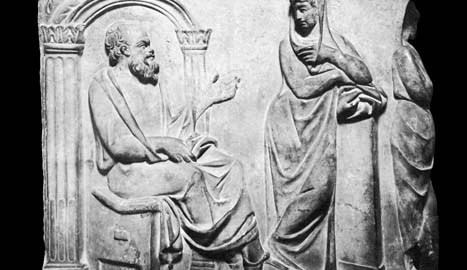Assessing David Brooks on Assessing Higher Education

David Brooks has written a trendy column about the crisis in confidence in higher education. Expensive colleges, shaken by the study Academically Adrift that shows that too many students don’t improve much in thinking and writing in college, have become obsessed with coming up with measures of assessment that prove the “value added” to each student by their product.
Brooks is right that college administrators don’t have the spirit of resistance to intrusive testing and such found among primary and secondary school teachers. There’s no comparable movement in higher education to the professional hatred shown by our dissed teachers to No Child Left Behind.
Brooks’ article generated a long and fascinating thread of responses—many defensive and some challenging. One suggests that Brooks may not have actually read Academically Adrift. The study actually shows that it’s majors such as business, communications, and social work that add the least to a student’s academic “value.” Majors in the traditional liberal arts acquire, according to the study, much more.
The remedy the study suggests is clear: Colleges should be encouraging students to major in disciplines such as history, philosophy, and literature.
And they should be encouraging professors in those disciplines to make students write lots and lots of papers based on reading real books—not (to begin with) text books. They don’t all have to be great books. Some can be good books, even a book by David Brooks. There are reasons I will give another time for why the best mixture would be some of the perennial classics and some of the very good books being written these days.
One of my colleagues just reported to me a conversation she overhead today between two of our fine majors in government at Berry College bragging/complaining about how many papers they have written this semester. And how many more they have still to go. Both of those young ladies have picked up a huge amount of value—that probably could be measured—since they’ve been at Berry.
It would be great if professors would get more rigorous, disciplined, and inspirational. But there’s still a lot to the simple observation that (lots of) practice makes perfect, or at significantly better.
There are plenty of good reasons why most of our students won’t choose a traditional liberal arts major. For one, we really do need able journalists and social workers. (For the sake of our businesses, we need many fewer business majors. That too is a story for another day.) (Someone could also say that it’s precisely because we need such able journalists and social workers that they too should have the great benefit of traditional liberal arts majors and save their specializing for graduate school.)
What can colleges do to max out on the value added to our more “practical” or technical specialists? Make them take—as part of the gen ed or foundations or core curriculum program—lots of courses that are all about the reading of and writing about real books.
I’m not sure we need more studies—or more sophisticated and precise assessment measures—to know what colleges are supposed to be doing.





